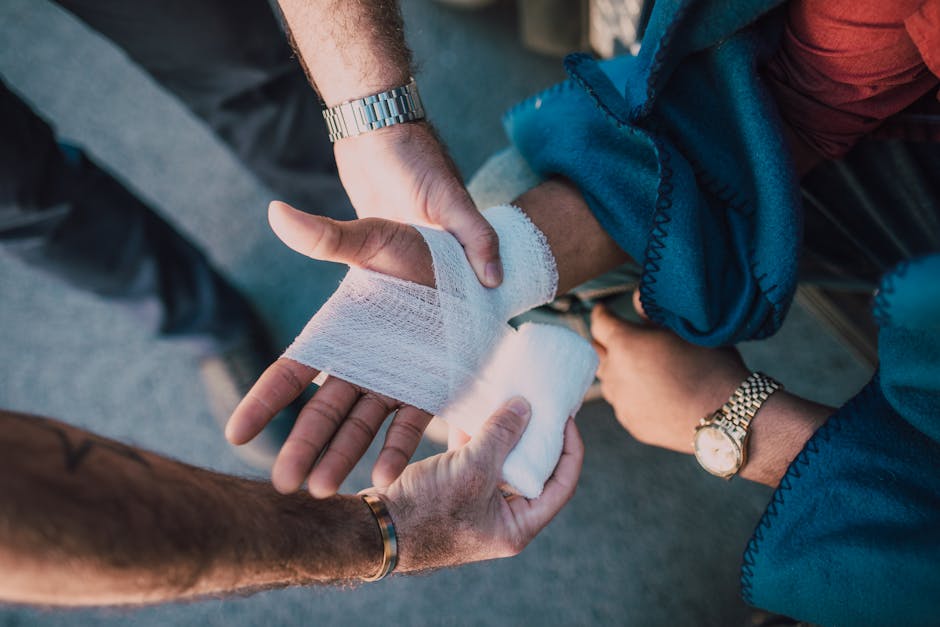Embarking on the journey of handling a personal injury claim independently can often seem like a daunting task. It necessitates a knowledge base that spans legal intricacies, insurance policies, and often time, a touch of medical understanding. However, the reward—personal satisfaction and financial savings—can make this pursuit worth their while.
For some, navigating this path independently may appear overwhelming, while for others, it might be a welcome challenge. Whatever the case may be, our objective with this blog post is to walk our readers through the complexities of self-managed personal injury claims. By the end of this post, our aim is to equip you with the essential information and practical tips to make this process less complicated and more rewarding.
When to Consider Handling Your Claim

It isn’t always necessary to engage a personal injury lawyer. If your injuries are minor and your claim is relatively straightforward, handling it yourself might be a viable option.
Consider taking the reins when:
1. You aren’t severely injured or immobilized. 2. The fault is clearly and strongly on the other party’s side. 3. Your losses are mostly material – meaning you can clearly calculate the claim, for instance, medical bills or property damage.
Before deciding, weigh the time, stress, and negotiation skills needed against the potential lawyer’s fees. Handling your claim could save money but remember, every case has unique elements. Ensure understanding the full implications before proceeding without professional legal advice.
Remember, this advice is specific to personal injury cases and may not apply to other legal situations.
Gathering Essential Evidence for Your Case

Begin the process of handling your personal injury claim by gathering substantial evidence. This includes any incident reports, medical reports, and eyewitness accounts.
Photographs are compelling proofs of injury and accident scenes, so ensure you have clear shots.
Keep a detailed record of your medical treatment, documenting all visits to healthcare providers, prescribed medications, and physical therapy sessions.
Additionally, document lost wages due to your inability to work. This might entail paycheck stubs or a letter from your employer.
Keep in mind that solid, verifiable evidence significantly strengthens your claim.
Finally, remember to organize your evidence chronologically and store it securely, as it can decisively sway the outcome of your claim.
Never underestimate the role of evidence in personal injury cases. Today’s efforts will undoubtedly benefit tomorrow‘s victory.
Conducting Injury-Related Research

It’s an essential first step to conduct comprehensive research related to your injury.
Get acquainted with the various laws and legislations related to personal injury in your jurisdiction. Consult law reports, legal textbooks, the internet, or, if necessary, legal professionals. This knowledge will help you understand whether your claim has legal merit.
Familiarize yourself with medical terms relevant to your injury. Understand the short-term and long-term effects, treatment procedures, potential complications, and recovery timelines. The more you know, the better you can quantify damages for your claim.
Also, learn about case precedents. Review instances where similar injuries resulted in successful claims and, importantly, the compensation awarded. This will provide a valuable benchmark when negotiating your settlement.
Remember: Thorough research has a direct bearing on your claim’s outcome.
Calculating a Fair Compensation Amount

Calculating a fair compensation amount for personal injuries can be somewhat complex.
Firstly, calculate your economic damages or “special damages”. This includes direct costs such as medical bills, property damages, and wage loss.
Secondly, consider non-economic, or “general damages”. This includes undergoing physical pain, emotional distress, and lowered quality of life.
Ensure to factor in future costs, such as ongoing medical treatment or future wage loss.
Remember that you’ll need to effectively demonstrate that the amount you’re claiming is reasonable. This could require expert testimonies or evidence of similar successful claims. In conclusion, calculating a fair compensation necessitates a comprehensive understanding of your economic damages, non-economic damages, and factoring in prospective costs.
Seeking legal advice might be beneficial to ensure you’re not missing out on what you rightly deserve.
Initiating Negotiations with the At-Fault Party

To begin negotiations, get in touch with the at-fault party or their insurance company. Start by writing a demand letter, clearly outlining the incident, your injuries, and the impact on your life.
Use documented evidence to support your claims and avoid emotive language; it’s important to keep the communication professional.
Next, attach a calculation of your quantifiable losses – medical bills or lost wages – with the necessary receipts and documents. Try to anticipate and admit potential challenges to your claim, showing flexibility and practicality.
End the demand letter by suggesting a settlement amount, ensuring it’s realistic and fair. It should cover all your losses and potential future expenses related to the injury.
Remember, negotiations are a process. It’s crucial to stay patient and persistent as you work towards a resolution.
Tactics for Dealing with Insurance Companies

Bracing yourself to become your advocate in dealing with insurance companies can be tricky, yet rewarding.
First and foremost, compile comprehensive documentation related to your injury. This includes medical reports, bills, photographs, and any other evidence.
Maintain solid communication with the insurance adjuster. Be open, regular, and firm without appearing aggressive or desperate.
Written correspondence is the best approach to avoid misunderstandings. When reaching agreements, ensure they are documented in a letter or email for reference.
Your negotiation power lies in the details. Be clear about your claims. If possible, provide a written estimate of your losses, citing cash figures.
Finally, don’t be afraid to seek advice. Connect with local legal advice centers or an experienced friend to guide your way. It’s an uphill climb, but with preparation and persistence, you can secure a fair settlement.
Documenting Your Personal Injury Claim Process

If you decide to handle your personal injury claim on your own, it’s crucial to meticulously document your entire claim process. Start by keeping a comprehensive record of all your medical treatments related to the injury.
Collect and retain all medical reports, prescriptions, bills, and other related documents. It will serve as the primary evidence when proving the extent of your injuries and the related costs.
Next, photograph your injuries, property damage, the accident scene, or anything else relevant to the claim. Ensure that these images showcase the severity and extent of damage involved.
Document any hit to your income due to the injury, such as missed work days or diminished earning capacity.
Don’t hesitate in engaging eyewitnesses too. Record their contact information and even their statements if possible.
It’s a taxing process, but detailed documentation can make a world of difference when pursuing compensation for your injury.
Settling Your Claim or Opting for Trial

Evaluating your personal injury claim is a critical phase. You need to consider whether it’s beneficial to settle your claim or carry it to trial.
Choosing to settle implies you agree to accept a payment from the at-fault party or their insurance company. It’s a guaranteed way to secure a certain amount of compensation. Plus, it’s quicker and less stressful than going to trial. Alternatively, opting for a trial could result in a larger payout. However, it’s a longer process, and there’s a risk you could walk away with less than initially offered – or nothing.
Remember, it’s not advisable to make this decision without legal advice. Evaluating your options can significantly impact your claim’s outcome. It’s essential to consult with an experienced attorney to explore the pros and cons of each choice.

